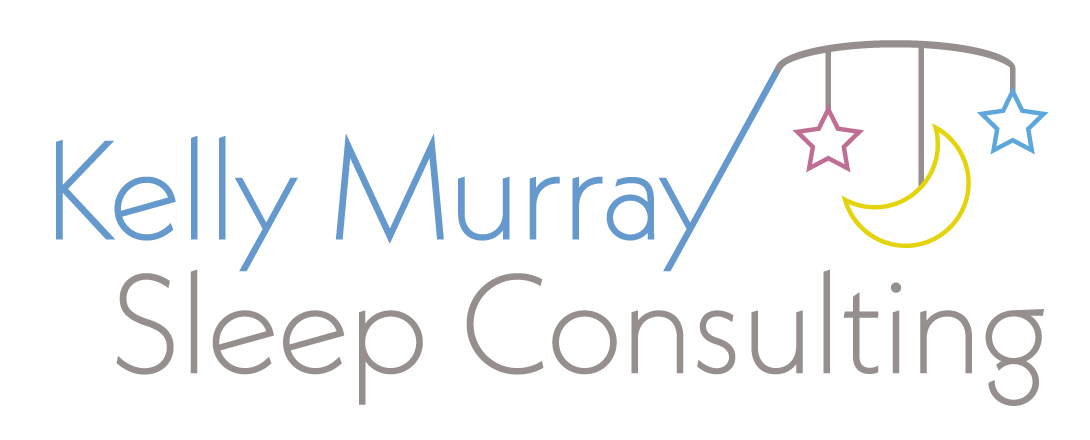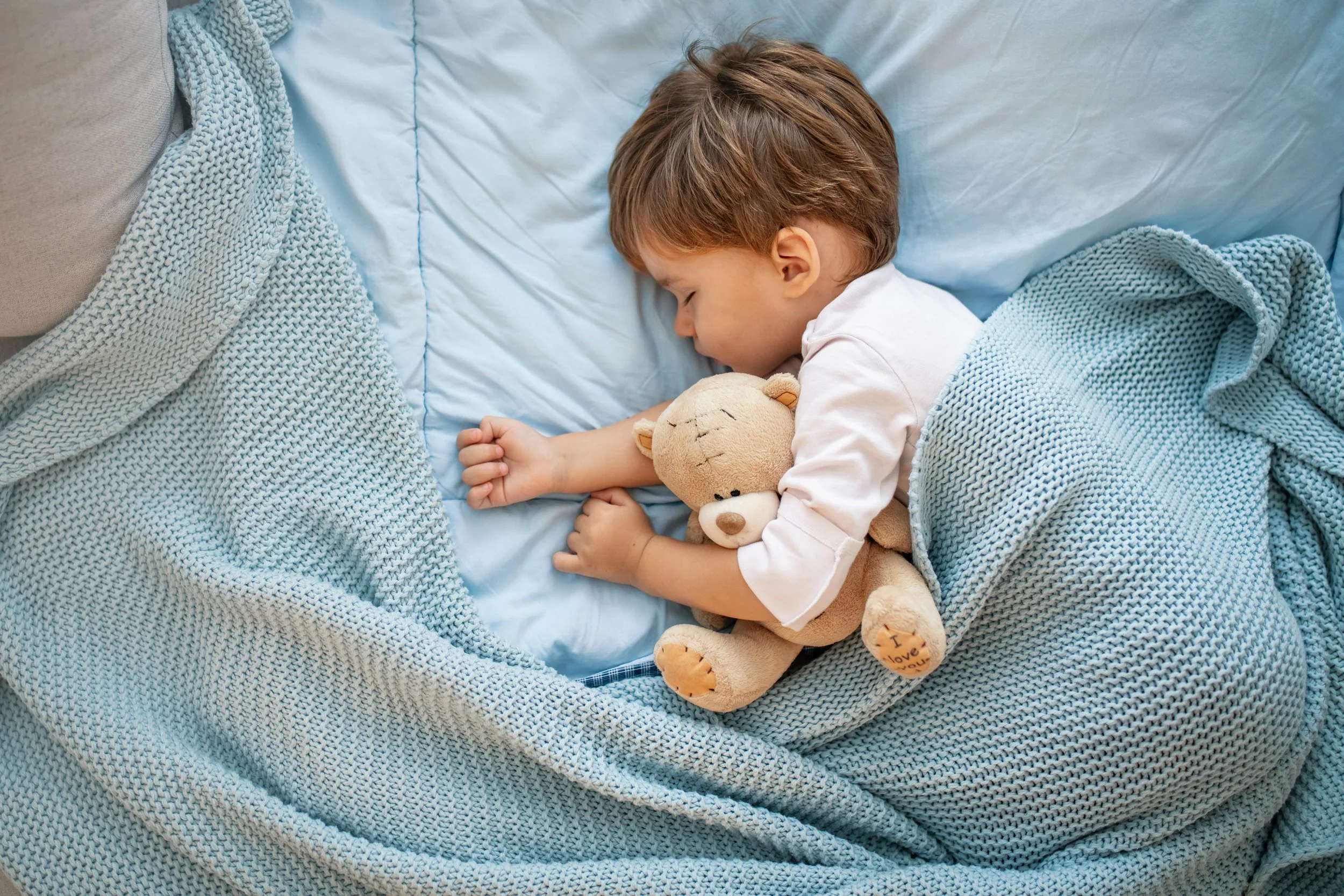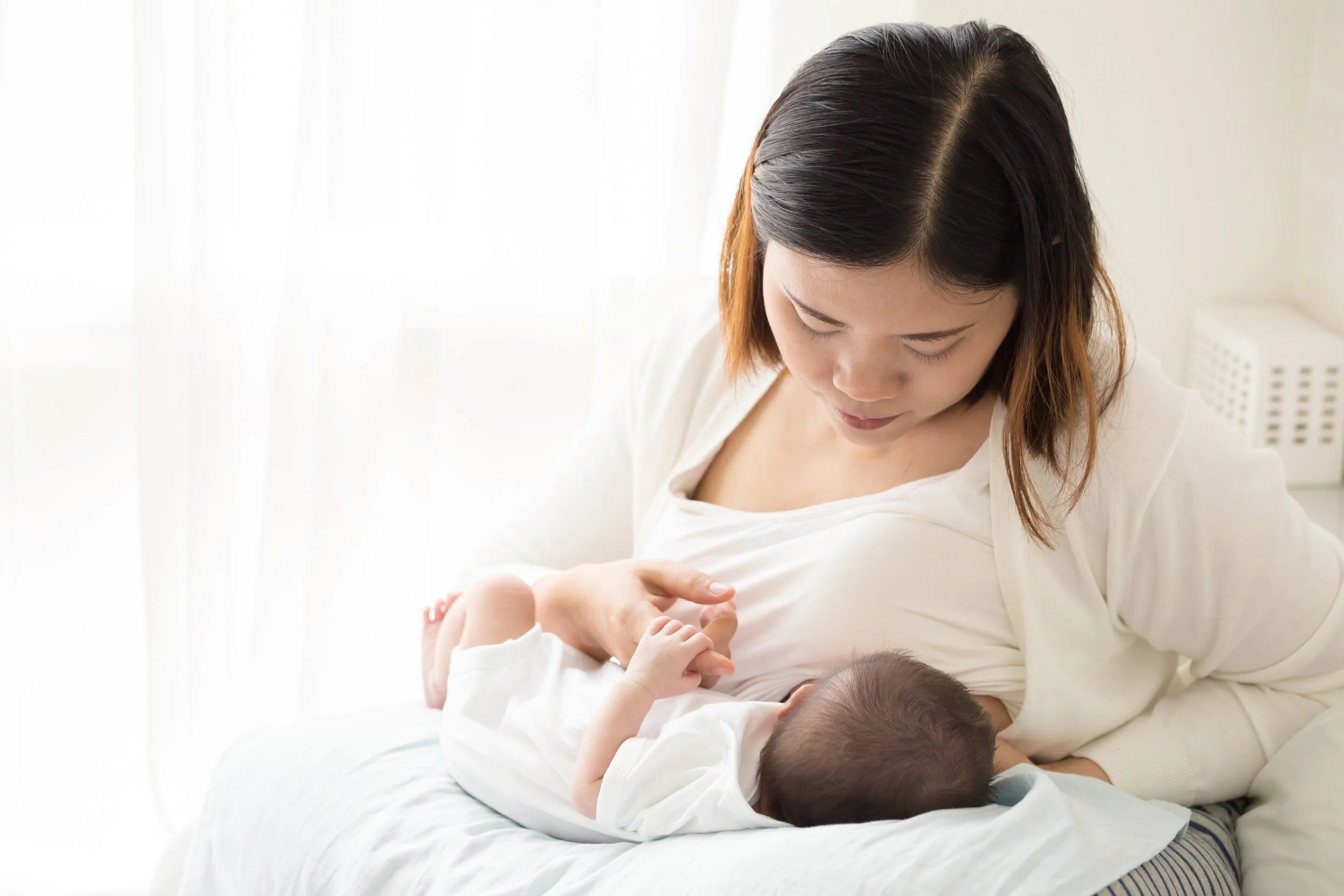Today I want to discuss a question I get asked all the time:
"At what age can I start sleep training?"
I don't blame parents for asking this question because:
You want to make sure that your child is ready.
You're likely exhausted and want to start ASAP — and you don't want to have to wait a month or two.
There are a lot of varying opinions out there.
I did some research before sitting down to write this blog to see what other experts recommend, and I was blown away by the diversity of answers.
In an effort to always help my clients make the most informed decision possible, and one that’s specific to their own situation, I certainly have a lot to say!
I'm going to share with you what I tell my clients based on my own research, as well as my experience helping over 500 families.
Let’s get to it.
"At what age can I start sleep training?"
When I'm asked this question, I tell families to wait until as close to 16 weeks as possible.
Now, there's plenty that you can do in the newborn phase to start establishing some healthy sleep habits! But sleep training means that you need to put your child down wide awake, without any sleep props — and babies typically aren't developmentally ready until the fourth month.
Let me explain why:
During the third month, babies are going through a major mental leap and they're discovering the world of smooth transitions.
Also in the third month, their sleep patterns are reorganizing and becoming more adult-like.
Last but not least, we can't be certain that your child has the capability to self-soothe until month four. Some experts will say to wait until month six; however, in my experience, I have yet to meet a four month old who is not able to self soothe.
Let’s take a closer look at these reasons, starting with number one:
During the third month, your child is likely going through a huge developmental leap.
Whenever your baby's going through a developmental leap, it's probably not the best time to sleep train. The reason why is because babies become very, very excited to practice all their new skills!
Remember that feeling when you’d get a brand new toy, or finally get the hang of something, like riding your bike? That’s what your baby is feeling.
So, babies tend to be a lot more alert — and also a lot more fussy and clingy. It’s because they want to practice, practice, PRACTICE their new skills!
All of those attributes — alertness, fussiness, and being stage 5 clinger — are a recipe for disaster when it comes to sleep training, so it's best to wait until the third leap is over.
The third leap is when your child discovers smooth transitions.
They begin to notice the change of tone in your voice, the differences in the type of movements that people and animals make, and their own physical movements become a lot smoother. You’ll start to notice that your child will be able to follow you with their eyes or head out of the room, and that their arms and legs are no longer puppet-like but are starting to move smoothly, just like ours.
If you want to learn more about this leap, I highly recommend checking out The Wonder Weeks® Book or App — it was a lifesaver for me when my children were little. It breaks down every single leap, explains to you what to look out for to know your child is leaping, and when they have completed the leap.
The second reason I like to wait until your baby is 4 months to sleep train is because:
Around 12 weeks, a baby’s sleep pattern reorganizes and becomes more adult-like.
During the newborn phase, a baby’s sleep is either REM sleep or deep sleep, with 50% of their sleep REM sleep, and the other 50% deep sleep. The reason for this is because they're doing a lot of growing and learning. When they're in deep sleep, their body's releasing growth hormone, and when they're in REM sleep, their brain is taking all the information from the day and creating memories.
Somewhere in the third month, a baby’s REM sleep goes from 50% to 25%, and their deep sleep (non-REM) breaks up into 4 different phases:
Phase One is really light — it's actually even lighter than REM sleep. It's a very drowsy state. Phase One of non-REM is what’s happening when you're watching TV, and you're starting to fall asleep, and you're going in and out of consciousness.
Phase Two is light sleep, not conscious.
Phases 3 and 4 are deep sleep, not conscious. This is when babies release vital growth hormones and start creating and storing memories.
Separating these phases are “sleep cycles”, which is when we go from one sleep phase to the next.
Why are these phases important to know?
When a baby’s sleep starts reorganizing, it becomes lighter and there's more opportunity for wake-up. So if you're using a sleep prop — such as rocking or feeding to sleep — then what happens is, in between sleep cycles, they're going to be a little bit more alert. If they’ve fallen asleep in your arms and you’ve transferred them to the crib, they’re going to expect to be in your arms when they wake up in between cycles — and they're going to flip out! Their fight-or-flight reflex is going to kick in and then they need you to come back and redo the bedtime routine to get them back to sleep. It’s a vicious cycle.
So, as you can imagine, the process of sleep-reorganization is pretty major and you don't want to sleep train while your child is going through this change.
(If you want to learn more about what happens when your child's sleep reorganizes, check out my blog post on the four month sleep regression. It is this change in sleep patterns that triggers the four month sleep regression.)
Last but not least, the reason I like to wait until four months to sleep train is because I can be certain that:
Your baby is capable of self-soothing.
As I mentioned before, there's a lot of disagreement in terms of when a baby is capable of self-soothing. Some experts say that they can self-soothe right out of the gate, while other experts will say 2 months, 3 months or 6 months. I have encountered newborns around 2-3 months that are able to self-soothe, but I've also encountered a lot of newborns at that age who cannot.
So, if you are desperate to get sleep and your child is in the third month, you can give it a try to see if your child can self-soothe, but proceed with caution. If you're not seeing progress after a few nights, I would press pause and wait until your child is four months.
Like I said, I have yet to meet a four month old who isn't capable of self-soothing.
“Count me in, Kelly!”
If your baby is four months old and you are ready to sleep train, I recommend checking out my blog post about sleep training. In it, I break down the four main methods of sleep training in detail for you. That way, you can get an idea of which method you would feel comfortable using.
They all work. What's most important is that you find a method you can stick to. You have to remain consistent. Without consistency, your child will become confused and you're not going to see good results.
If you're one of those parents who knows you need to work one-on-one with someone, we would love to chat with you. We offer free discovery calls where we learn more about your situation and explain how we would approach it, so you can decide if we would be a good fit for your family.
Sweet Dreams…
Kelly Murray is a certified sleep coach and an award-winning pediatric sleep consultant based in Chicago offering sleep coaching services nationwide.











